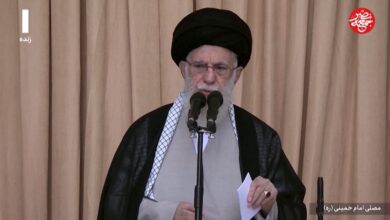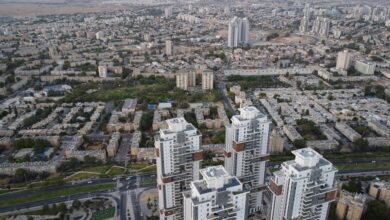Ramallah–President Barack Obama’s Middle East envoy wrapped up his latest diplomatic mission Sunday without getting the Palestinians to agree to indirect peace talks with Israel, but there were signs the impasse could be broken soon.
George Mitchell said he would return to the region next week, signaling he is making progress.
Palestinian officials said President Mahmoud Abbas plans to consult with Arab countries at the end of the week and could soon be heading to the White House for talks with Obama.
Abbas needs to decide whether to engage with Israel, with Mitchell as a go-between, even though Israel has rejected his demands to freeze new construction for Jews in east Jerusalem, the Palestinians’ hoped-for capital.
A senior Palestinian official said Abbas was inclined to agree to the talks, in large part because of personal appeals in recent days from Obama, Mitchell and US Secretary of State Hillary Clinton. The official spoke on condition of anonymity because he was discussing internal Palestinian deliberations.
The Palestinians have low expectations of the US-brokered talks, but also want to avoid offending Obama and do not want to be cast in the role of nay-sayers.
At the start of Israel’s weekly Cabinet meeting, Prime Minister Benjamin Netanyahu described Israel’s talks with Mitchell as “very positive” and voiced hope that the Palestinians would return immediately to the negotiating table.
Mitchell has been shuttling between the two sides for more than a year, hoping to relaunch negotiations that collapsed in late 2008.
The Palestinians have said they will only resume direct negotiations if Israel agrees to freeze all settlement construction in the West Bank and east Jerusalem. Israel has refused, agreeing only to a temporary slowdown in the West Bank, but not in Jerusalem.
As a way out of the impasse, Mitchell proposed shuttling between the two sides. Indirect talks were to begin last month, but were derailed after Israel announced a major east Jerusalem construction project during a visit by US Vice President Joe Biden.
Some 180,000 Israelis live in Jewish neighborhoods that ring east Jerusalem, which Israel captured and annexed in the 1967 Mideast war. The international community, including the US, does not recognize the annexation.
Some of the most contentious Israeli activity in east Jerusalem is taking place in the heart of Palestinian neighborhoods.
On Sunday morning, about three dozen ultranationalist Jews carrying Israeli flags marched through one of those neighborhoods to dramatize their claim to the eastern sector of the contested holy city.
Palestinian protesters burned tires and garbage and threw rocks and two firebombs at Israeli police, who responded with tear gas and rubber bullets. Police said three people were arrested. There were no serious injuries.
Mitchell, meanwhile, left the region after meeting separately Friday with Abbas and Netanyahu, and once more with the Israeli leader on Sunday. The US State Department said Mitchell would return next week.
Abbas is to consult with Arab League representatives Saturday on whether to agree to the indirect talks. In previous consultations, the Arab League had given Abbas the green light. Arab approval would give Abbas extra backing to sell the talks to a skeptical public.
The US has since been trying to coax Abbas back to the table.
Last week, Obama wrote to Abbas, promising to work hard to achieve a comprehensive Mideast peace deal and asking the Palestinian leader to agree to indirect talks, according to an Abbas aide who spoke on condition of anonymity because he was not authorized to discuss the content of the letter with the media.
Obama also wrote that he looks forward to seeing Abbas soon, the aide said. He said an Obama-Abbas meeting could take place in the second half of May, but that no formal invitation was issued and no date set.
Another Abbas adviser, Saeb Erekat, said the Palestinians had requested a White House meeting in the past, and that Mitchell told them that Obama agreed to such a meeting. Erekat also said no date has been set.
Word of an expected meeting came a day after Abbas publicly expressed his frustration with what the Palestinians perceive as the Obama administration’s failure to extract concessions from Israel.
In a speech to leaders of his Fatah movement, Abbas noted that Obama has defined a Palestinian state alongside Israel as a vital US interest.
“Since you, Mr. President and you, the members of the American administration, believe in this, it is your duty to call for the steps in order to reach the solution and impose the solution — impose it,” Abbas said.




